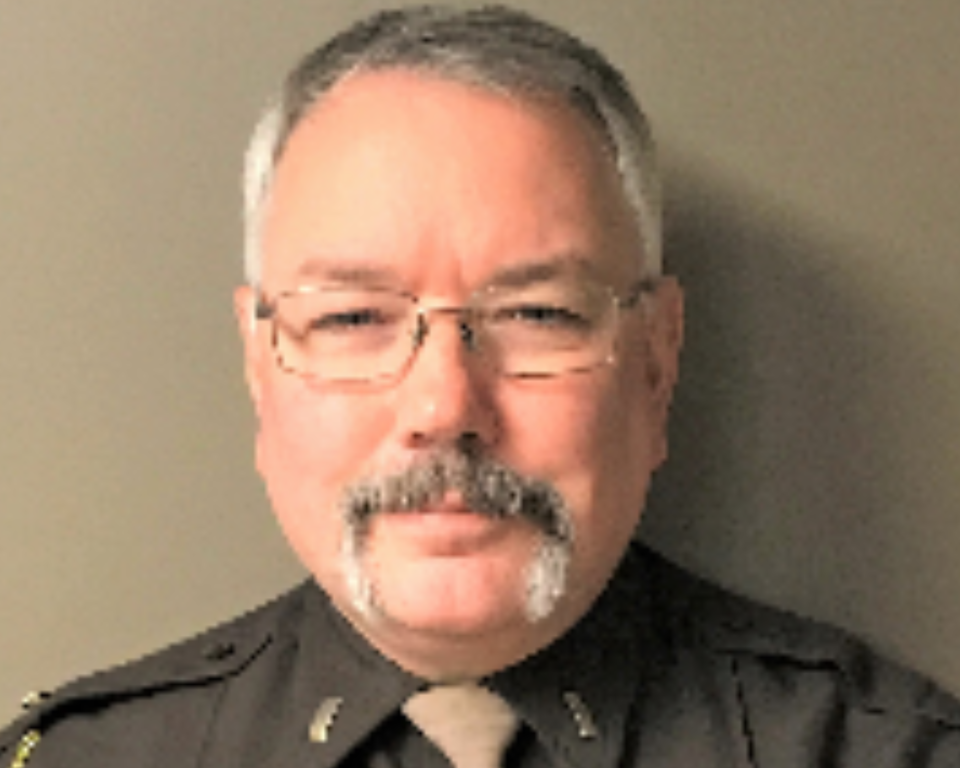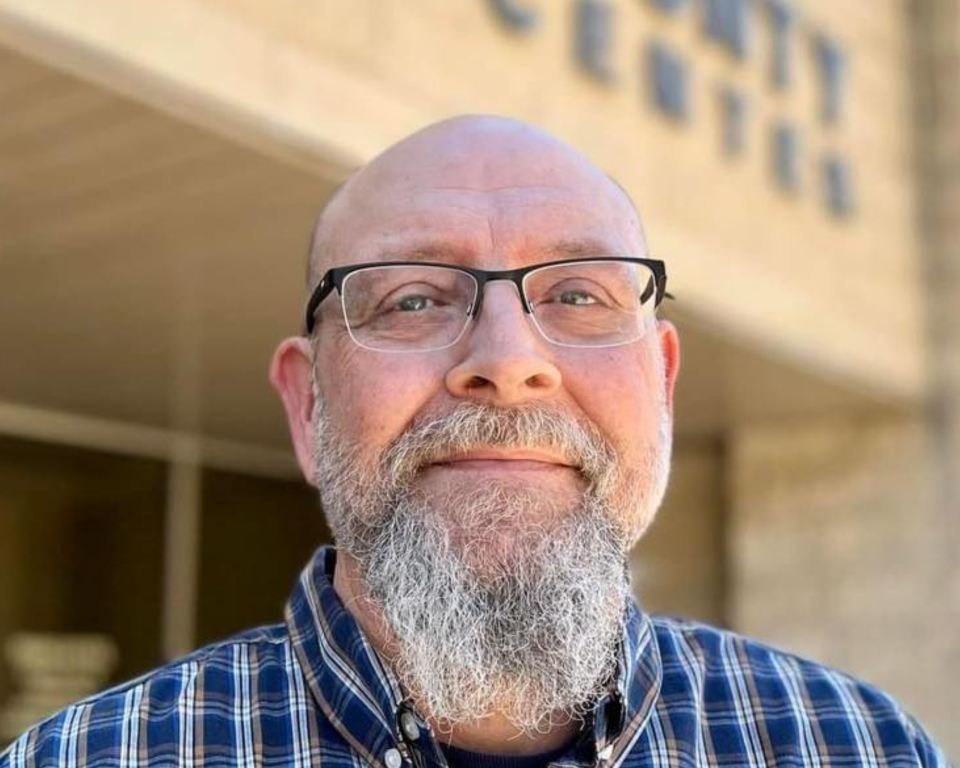Meet the candidates running for Lincoln County sheriff in the November election
Incumbent Ken Schneider, a Republican, will face Independent challenger Garrett Dinges for Lincoln County sheriff on Nov. 8.
To learn more about registering to vote and to find your polling location, visit My Vote Wisconsin.
The Wausau Daily Herald asked each of the candidates to address important issues in the county and why they believe they are the best candidate for the position.
Ken Schneider

Age: 58
Residence: Merrill
Occupation: Lincoln County sheriff
Garrett Dinges

Age: 50
Residence: Merrill
Occupation: Economic support specialist for Lincoln County
Campaign website: facebook.com/dingesforsheriff
Why are you running for this office?
Schneider: I am running for sheriff because I believe the safety of the people in Lincoln County is the most important duty we have in law enforcement. I believe the people in Lincoln County should have the most experienced person for this position. I believe I am that person.
Dinges: Every citizen of Lincoln County deserves to live in a safe community and be served by a law enforcement agency that’s held accountable to the same standards and rules as the community they serve. The definition of insanity is to do the same thing over and over again and expect different results.
Why are you the best candidate in this race?
Schneider: I have worked for 32 years at the sheriff's office. I started as a corrections officer. I was a deputy. I was a patrol lieutenant, SRT member, SRT team leader, SRT commander. I have supervised the communications center and the detective bureau. I have instructed firearms, taser and active shooter classes.
Dinges: I have held different positions in my career. I worked as a psychiatric technician, an emergency medical technician, law enforcement as a correctional officer for 20+ years and social services. I have a diverse and different perspective than those who have been working for decades in this current administration.
What are residents telling you are their greatest concerns, and how would you address them?
Schneider: The issue of illegal drugs comes up most often. We have a sergeant detective assigned to a federal task force. He has been involved in numerous local arrests in this position. The cooperation we have in this task force comes from cities, counties, state and federal agencies.
Working together like this does make a difference. It gives us access to equipment and personnel numbers that we alone could not manage. This task force also makes it easier to charge these cases federally.
Dinges: Resources of taxpayers' dollars wasted and misused, restoring relationships with local law enforcement agencies and social services, and lack of consistency when it comes to the 911 center. As sheriff, I will examine every line item of the budget to make sure that the taxpayers get the quality service they deserve.
I will restore relationships by having clear lines of communications with all these agencies. I will immediately seek out a competent 911 administrator for that center, and I will reorganize everything to bring a new perspective and styles of leadership that will help bring transparency at all levels.
Sheriff's departments across the state are dealing with a shortage of corrections officers and deputies. How would you work to retain officers and ensure the department is properly staffed?
Schneider: This issue has been foremost on our minds. This topic also includes the shortage of people for the 911 communications center. During exit interviews, wages come up most often. People can move to the private sector and make significantly more money.
The county has a tight budget as you have witnessed in the news media. We are presenting a budget that if accepted by the county not only meets the requested cut to our budget but will give a wage increase to our 911 and correction staff. This will be done by a restructure within the agency. Patrol is almost fully staffed.
Dinges: People do not leave jobs, they leave managers, supervisors and administrators. The number one internal factor affecting an employee’s decision to stay or leave a job is the relationship with their immediate supervisor. And this is a major issue within this agency.
There needs to be a different approach. Leaders must engage the minds and hearts of their officers. Let officers take ownership of various projects in which they are assigned to participate. I will implement an employee voice solution program to help gather, analyze and improve employee sentiments that will help address the critical issues this agency faces.
What can the department do to ensure that deputies respond appropriately and safely to situations that involve people with mental illness?
Schneider: This is a deeper subject than just our response. Mental health facilities are dealing with the same staff shortage issues. Some people with mental health issues are not getting the care needed. They then end up in our system and, at times, in our jails. Corrections staff deal with mental health issues daily.
We have an exceptional group of professional people working at the sheriff's office. They have all received at least some training dealing with people suffering from mental health issues. Now that the COVID restrictions have reduced, there may be more options for training that falls within the budget.
Dinges: Unequivocal communications between social workers and law enforcement officers can have an impact on intervention strategies and conflict resolutions throughout our community. Restoring the lack of relationships between these agencies can provide training, enhanced knowledge and skills related to mental illness, substance abuse and domestic violence present in our community.
As sheriff, I will provide officers with training to determine whether a person's behavior is indicative of a mental health crisis. With guidance, techniques, response options and resources these situations can be resolved in as constructive, safe and humane manner.
What can be done to educate the public about the dangers of fentanyl and reduce the overdose deaths in Lincoln County?
Schneider: It has been many years since the Lincoln County Sheriff's office has had a fentanyl related overdose death outside of a City jurisdiction. That is not to say it is not dangerous. Our officers all carry Narcan nasal spray. This can help treat an opioid overdose in an emergency until emergency medical services arrive. If you come across someone who you believe may be suffering from an drug overdose, or a substance you believe may be drug related, contact 911 immediately. If you know someone who is using illegal drugs, as difficult as it may be, try to get them help.
Dinges: The current opioid epidemic is unprecedented in American history. A social media campaign is the key to educate kids and parents about the dangers of fentanyl. We need to grab their attention with virtual and in-person presentations.
I will examine programs such as LEAD (Law Enforcement Assisted Diversion) that seeks to connect people with opioid use disorder with treatment and social services. Individuals would be assigned a case manager who works with law enforcement and prosecutors to create and maintain an individual recovery plan. This would reduce overdose deaths, future incarcerations and provide a safer and more secure community.
MORE ELECTION NEWS: How abortion and the overturning of Roe v. Wade is shaping Wisconsin's race for governor
MORE ELECTION NEWS: Wisconsin U.S. Senate election updates: Mandela Barnes raised more than $20.1 million in third quarter
This article originally appeared on Wausau Daily Herald: Ken Schneider and Garrett Dinges vie for Lincoln County sheriff

